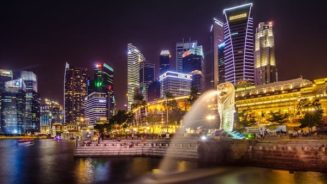Japan can’t have its own army, for example, and Abe is a ‘military-ist’, so reforming the constitution is a somewhat contentious issue because Japan’s society is pacifist. To amend the constitution Abe would require “a two-thirds majority in both houses, which he hasn’t got in the Upper House, and that is taking place this summer, so it is all eyes on whether he will achieve that with a two-thirds majority. Whether that will be good for the stock market, I am not sure,” he says.
The prime minister has started pursuing a slightly more right-wing agenda, and this could be problematic, says Rose. “In some ways, there is no reason why the third largest economy in the world shouldn’t have its own army. It can go overseas. That seems perfectly reasonable.”
Uneasy peace
While not having an army may seem like a historical anachronism, the militarisation of Japan would be like a red rag to the Korean or Chinese bull, so to speak. “China, in particular, is a very important market for Japan. It is Japan’s biggest export market and the economy has benefited from an influx of Chinese tourists over the past few years.
“I went to Japan last year on business and took a few days off to travel around with my wife, who is Japanese. We went to some of the tourist spots and I was hearing more Chinese spoken at times than Japanese. That was a real change.
“It is good for the economy, of course, although I am not sure the Japanese welcome them. They tolerate them, I believe, but were we to see another period of tension with China, those Chinese tourists may not be visiting Japan so often. That is the risk if the prime minister pursues a more ‘military-ist’ agenda.”




